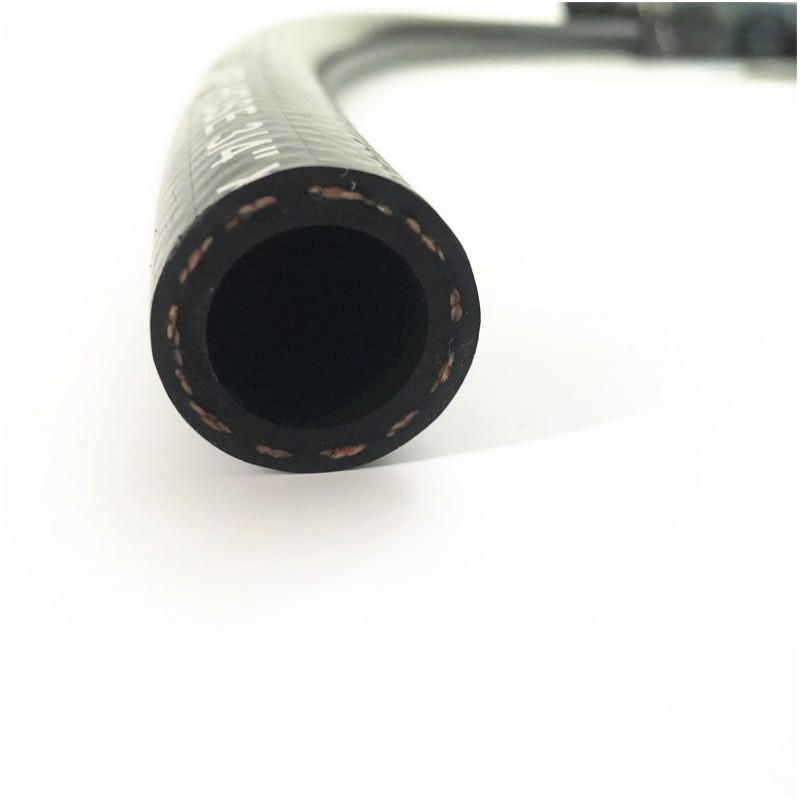נוב . 19, 2024 15:53 Back to list
High-Performance PTFE Teflon Hoses for Various Industrial Applications
Understanding PTFE (Teflon) Hose A Comprehensive Overview
PTFE (Polytetrafluoroethylene), commonly known by the brand name Teflon, is a synthetic polymer that has revolutionized various industries with its remarkable properties. One of the most significant applications of PTFE is in the manufacturing of hoses, specifically PTFE hoses. These hoses are known for their excellent chemical resistance, high-temperature tolerance, and low friction properties, making them ideal for a variety of demanding applications.
What is PTFE Hose?
PTFE hose is a type of flexible tubing made from polytetrafluoroethylene. Due to its unique molecular structure, PTFE possesses a non-stick surface, is highly resistant to corrosion, and can withstand temperatures ranging from -320°F to +500°F. This versatility allows PTFE hoses to be used in industries such as pharmaceuticals, food and beverage, chemical processing, and aerospace, where standard hoses may fail.
Key Properties of PTFE Hose
1. Chemical Resistance One of the standout features of PTFE hoses is their ability to resist a wide range of chemicals, including acids, bases, organic solvents, and gases. This property ensures that the hoses do not degrade or contaminate the substances they carry.
2. High-Temperature Tolerance PTFE can retain its mechanical properties at high temperatures, making it suitable for high-heat applications. This trait is particularly beneficial in industries where processes may involve extreme temperatures.
3. Low Friction The non-stick surface of PTFE reduces friction, which allows for smooth flow and minimal pressure loss. This is especially important in applications requiring precise fluid control.
4. Flexibility and Durability Despite its high-performance characteristics, PTFE hoses remain flexible and can be easily handled, bent, and routed around obstacles. They also have an extended lifespan due to their resistance to wear and tear.
5. Non-Toxic PTFE is non-toxic, making it a safe choice for applications in the food and pharmaceutical industries where purity and safety are paramount.
Applications of PTFE Hose
ptfe teflon hose

The versatility of PTFE hoses has led to their widespread use across various fields
- Chemical Processing In environments where highly corrosive substances are handled, PTFE hoses provide reliability and safety. - Food and Beverage Industry PTFE hoses are ideal for transporting food products, beverages, and cleaning agents, as they do not impart any taste or odor and are easy to sanitize.
- Pharmaceuticals Due to their non-reactive nature, PTFE hoses are commonly used in pharmaceutical manufacturing, facilitating the transportation of active ingredients and ensuring product integrity.
- Aerospace The lightweight yet durable characteristics of PTFE make it an attractive option for aerospace applications, where performance and safety are critical.
Choosing the Right PTFE Hose
When selecting a PTFE hose, several factors must be considered
- Diameter and Length Ensure that the hose diameter matches the specifications of your application and that the length is sufficient for your setup. - Reinforcement Depending on the application, PTFE hoses can come with various types of reinforcement (like stainless steel braid) to provide additional strength and durability.
- Temperature and Pressure Ratings Always verify the hose’s maximum temperature and pressure ratings to ensure suitability for your specific application.
Conclusion
PTFE hoses, based on the remarkable properties of Teflon, exemplify innovation in flexible tubing solutions. Their unique blend of chemical resistance, high-temperature tolerance, and flexibility makes them indispensable in numerous industries. As technology continues to advance, the development of even more specialized PTFE hoses is expected, paving the way for safer, more efficient operations across various sectors. Whether you are in chemical processing, pharmaceuticals, or food and beverage production, understanding the benefits and applications of PTFE hoses can help improve your operational efficiency and safety.
-
Best Four Steel Wire Spiral Hose Hydraulic R12 – Durable High-Pressure Hose Manufacturer
NewsJul.08,2025
-
High-Quality 1/4 Hydraulic Hose – Soft, Flexible & Durable Rubber Hoses for Industrial Use
NewsJul.08,2025
-
1 1 2 Inch Hydraulic Flexible Hose - Durable, Reliable, High-Pressure Solutions
NewsJul.07,2025
-
High-Quality 1 2 Rubber Hose - Durable, Flexible Hydraulic Solutions
NewsJul.07,2025
-
Discover SAE Hydraulic Hose Types - High Quality & Durable Hoses from Leading Factory Supplier
NewsJul.06,2025
-
High Pressure Wire Hydraulic Rubber Hose Supplier Durable & Reliable 1SN Hose Solutions
NewsJul.06,2025
